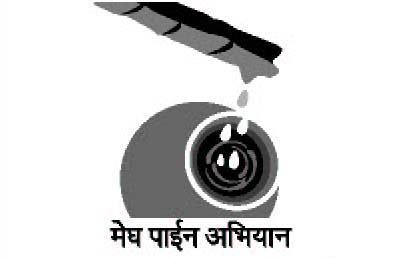/topics/treatment-and-purification
Treatment and Purification
Clean drinking water using low-cost purification plants - A case study from the work of IFMR Trust and WaterHealth India in Andhra Pradesh
Posted on 08 Jun, 2010 11:49 PMThis field report describes the work of WaterHealth India (WHI), in organising safe drinking water using low-cost water purification units, in several villages of Andhra Pradesh. The work was taken up with financial support from IFMR Trust.
Vinjinampadu village in Guntur district, Andhra Pradesh, is one of the villages where WHI worked to establish the unit. The village had lacked potable water supply, because of which its people suffered from a range of water-borne diseases. The situation was similar in many of the other villages in which WHI initiated this work.

Safe drinking water for all using a portable low cost solar disinfection unit - A research paper
Posted on 07 Jun, 2010 02:23 PMThis paper by A Jagadeesh of RMK Engineering College, describes the design and testing of a portable, low-cost, and low maintenance solar disinfection unit, that can provide potable water. This system was tested with bore water, well as well as with waste water. In 5 hours, the unit eradicated 99.99% of the bacteria contained in the water samples.
This unit can provide about 6 liters of pure drinking water and larger units can be fabricated for providing safe drinking water at a community level.
"Kochi: To Get Rs 100 Crore Modern Sewerage System" : Droplets (May '10)
Posted on 25 May, 2010 12:08 PM
Highlights
- Kochi: To Get Rs 100 Crore Modern Sewerage System
- Punjab: Rs 53.58 Crore New Water Supply & Sewerage Project
- Pune: To Construct 120 MLD Water Filtration Plant
- Water.Org: Launches India WaterCredit Forum
Rainwater filtration from large roofs in polluted environments to potable quality
Posted on 21 Apr, 2010 05:25 PMIs there anyone in India who is willing to develop a multi-stage Saferain unit with me?
Imagine a 5000 sq metre factory in New Delhi, (or Shanghai, or wherever).
The air is polluted, the roof is polluted, and, yet, I say that potable. or near so, can be delivered in a rain event. The following is a cut and paste. This is how it's
Press release : UL certifies Kimberlite Chemicals for health effects in drinking water
Posted on 20 Apr, 2010 11:25 AM
For Immediate Release
Underwriters Laboratories Certifies Kimberlite Chemicals for Health Effects in Drinking water
Kimberlite Chemicals Becomes First Indian Company to Earn UL
Certification for Antiscalant Water Treatment Chemicals
Bangalore, India, April 14 2010 – Underwriters Laboratories (UL), a global leader in drinking water quality and safety, today announced that Kimberlite Chemicals India Pvt. Ltd., received UL certification for its antiscalant water treatment chemicals. Kimberlite’s antiscalant water treatment chemicals will now bear the UL Classified Water Quality Mark, indicating certification to ANSI/NSF Standard 60 for health effects.
UL launched its drinking water product certification program in India in 2009 and has been working with a number of Indian companies on a broad range of products including disinfection and oxidation chemicals, coagulants, drinking water treatment units, gaskets, butterfly valves, sediment filter cartridges and activated carbon. Kimberlite, a renowned company known for its world-class technology product and service in the field of specialty chemicals and coatings, is the first Indian manufacturer to be certified through UL’s water program for antiscalant water treatment chemicals.
UL’s certification of Kimberlite’s antiscalant chemicals provides verification that these chemicals have been independently tested and validated to meet both industry standards for health effects in drinking water as well as UL’s rigorous certification requirements. Antiscalant chemicals are used to protect reverse osmosis (RO) membrane life and are used in industrial RO purifiers.
Bioremediation of turbid surface water using seed extract from Moringa Oleifera Lam (Drumstick Tree)
Posted on 26 Mar, 2010 06:38 PMThis research paper describes an indigenous water treatment method, that uses Moringa oleifera (Drumstick) seeds in the form of a water-soluble extract in suspension, resulting in an effective natural clarification agent for highly turbid and untreated pathogenic surface water.
Reverse osmosis plants for rural water treatment in Gujarat - A research paper by CAREWATER
Posted on 23 Mar, 2010 01:38 AMThis research paper attempts to understand and map the Reverse Osmosis (RO) phenomenon, a technology that is turning out to be an important solution for drinking water treatment in rural Gujarat. Treatment plants with capacity ranging from 10 litres per hour (lph) to 6000 lph are now supplying drinking water in several hundred villages of the state. Small sized plants with capacity < 20 lph are used by individual families whereas medium to large sized plants (>100 lph) are being used for public consumption.
Organising safe drinking water through community participation in flood-affected areas of Bihar - Case studies from the work of the Megh Pyne Abhiyan network
Posted on 22 Mar, 2010 02:08 AM This set of case studies (in hindi), details the work of Megh Pyne Abhiyan and their network partners - Gramyasheel and Samta, in organising safe drinking water in participation with the local village communities, in the flood affected West Champaran, Supaul and Khagaria districts of Bihar.
This set of case studies (in hindi), details the work of Megh Pyne Abhiyan and their network partners - Gramyasheel and Samta, in organising safe drinking water in participation with the local village communities, in the flood affected West Champaran, Supaul and Khagaria districts of Bihar.
Hydrogeological studies for improved groundwater management strategies in the dryland areas underlain by Deccan basalts - ACWADAM
Posted on 02 Mar, 2010 05:18 PM2010 Unsolicited Research Program Request for Preproposals in Water Reuse and Desalination
Posted on 04 Feb, 2010 12:18 PMThe WateReuse Foundation is seeking preproposals for funding consideration under its 2010 Unsolicited Research Program. The total amount of funds approved for the Foundation's 2010 Unsolicited Research Program projects is $301,531.





